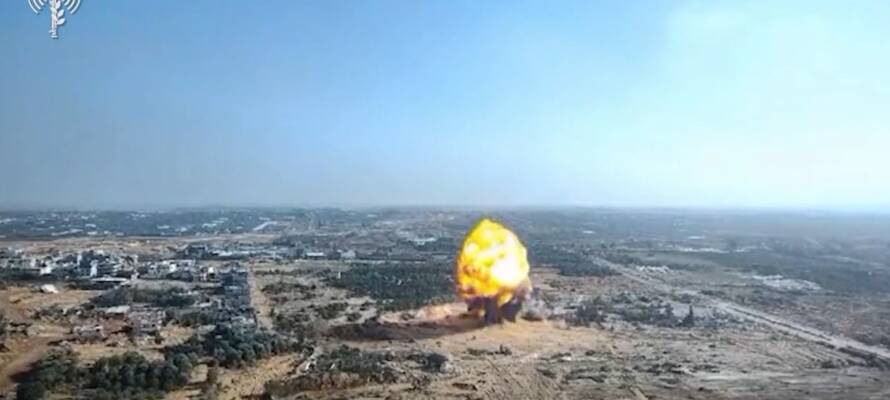In the quest for stability in post-war Gaza, Israeli officials are exploring unconventional avenues, seeking partnerships with local clans.
By Baruch Yedid, TPS
Israeli officials looking for moderate Palestinian figures to govern post-war Gaza are trying to build relationships with local clans. But how viable are their efforts?
The Saudi newspaper Asharq al-Awsat reported on Monday that several clans in the northern Gaza Strip were approached by Israeli officials offering them to take on the responsibility of securing aid to the residents of the Gaza Strip.
The Israelis were from a Defense Ministry unit called Coordination of Government Activities in the Territories. COGAT coordinates civilian issues in Judea, Samaria and Gaza between the Israeli government, military, international organizations and the Palestinian Authority. The paper reported that most clan leaders refused, though one, which conflicts with Hamas, agreed to the Israeli proposal. Another clan is in negotiations with COGAT, the paper added.
According to the newspaper, Israel offered clan leaders the opportunity to form an alternative government to Hamas.
Although Asharq did not identify which clan agreed to the Israeli proposals, the Tazpit Press Service has learned from sources in Gaza that it is the Durmush clan. The clan is heavily armed, supports Fatah, and participated in the 2005 kidnapping of Israeli soldier Gilad Shalit.
The paper quoted a Hamas source saying that the terror group “is aware of the Israeli plans and promises to settle accounts with the collaborators with Israel.”
Fatah figures in Gaza and Ramallah told TPS, “This is a plan that is doomed to failure in advance since no party will be found who will agree to accept cooperation with the Israeli occupation. Certainly not after the great disaster that befalls the Gaza Strip.”
That view was echoed by outgoing Palestinian Prime Minister, Mohammad Shtayyeh at Monday’s cabinet meeting, where he saluted the clan leaders who refused to work with Israel. The Fatah-dominated Palestinian Authority objects to any efforts to replace it in Gaza or force it to work in partnership with outsiders. As TPS recently reported, Mahmoud Abbas seeks to rule Gaza in a unity government with “soft-core” Hamas figures.
Clans — a social unit of extended families — hold significant importance in Palestinian society, serving as networks of support in social, economic, and political spheres and mediating disputes between families. They are especially active in Gaza’s main urban centers.
Palestinian Authority and Fatah sources told TPS, “Israel is betting on the wrong horse since a very large part of the population of Gaza is a refugee population that is not organized under tribal institutions.”
They also said that a large part of the clan establishment is subordinate to the Hamas Interior Ministry and many of the heads and members of these clans serve in various positions in the civil and security systems of Hamas.
In the meantime, popular committees have begun to operate all over the Gaza Strip.
They began operating in recent days, especially in the Rafah area. These committees, which according to the sources in the Gaza Strip, are based on the local clans in Rafah. They work to prevent humanitarian aid from being stolen and preventing price-gouging. Their efforts are enforced by young men armed with weapons or clubs wearing gray and white bandanas that say “People’s Defense Committees.”
But these groups are new, and Rafah is Hamas’s last stronghold, so the nature of their relationship with Hamas is not clear.
Popular Committees have also emerged in northern Gaza, leading efforts to restore water and electricity infrastructure.
“Local residents decided to take care of the crumbling infrastructure when the Hamas regime disappeared from the Gaza Strip completely,” a Gaza source told TPS.
“This is a rather interesting phenomenon because Israel is trying to base the rule of the day after in the Gaza Strip on local elements, such as those who have begun to act.”




